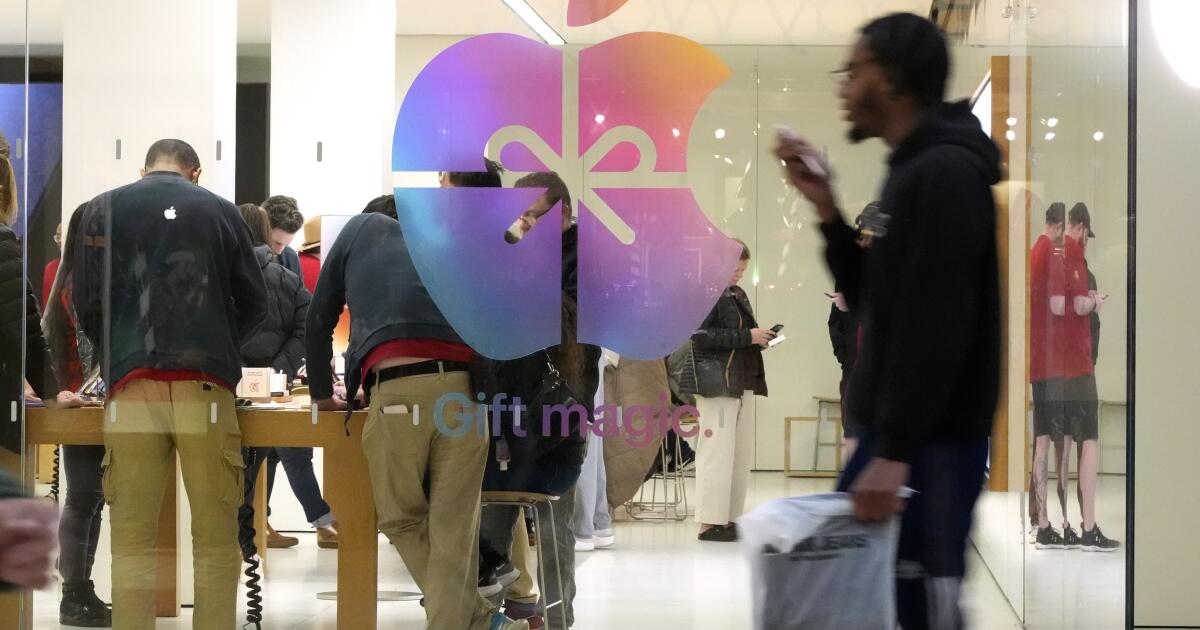Stock prices of Apple, Alphabet and other Silicon Valley tech companies rebounded on Monday after the Trump administration said electronics, including semiconductors and smartphones, were exempt from the “reciprocal tariffs” announced earlier this month.
But the bounce may not last. Tech giants could still face drastic changes to how they manage their supply chain and costs.
Secretary of Commerce Howard Lutnick told ABC News on Sunday those electronic products are going to be part of tariffs affecting the semiconductor sector “which are coming,” potentially in a month or two.
Apple stock rose 2% to $202.52 a share on Monday, a boost from the stock’s sharp decline after Trump announced reciprocal tariffs earlier this month. Google parent company Alphabet and chip maker AMD also got a reprieve, with their stock prices rising 1% on Monday.
Apple stock plummeted after Trump announced extra tariffs on China, Vietnam and India on April 2. Trump has since paused additional tariffs on most countries, but has raised duties on Chinese imports to 145%.
“We need to have these things made in America, we can’t be reliant on Southeast Asia for all of the things that operate for us,” Lutnick told ABC, adding that the goal is for the companies to bring more of their manufacturing back to the United States.
The escalating conflict has worried investors because Apple and other tech companies produce many products in China. Though it has shifted more production to India in recent years, Apple still makes most of its iPhones in mainland China.
Amid more pressure from the White House, Apple and Nvidia have announced plans to bring more jobs to the U.S.
Nvidia on Monday said it is working with its partners to build and test Nvidia Blackwell chips in Arizona and AI supercomputers in Texas, with production ramping up in the next 12 to 15 months.
“Adding American manufacturing helps us better meet the incredible and growing demand for AI chips and supercomputers, strengthens our supply chain, and boosts our resiliency,” said Nvidia CEO Jensen Huang in a statement.
Nvidia’s stock price closed at $110.71 on Monday, virtually unchanged.
Apple in February said it would invest $500 billion in the U.S. that would go toward various efforts, including opening a manufacturing facility in Houston.
Still, analysts say it will be difficult to bring manufacturing jobs back to the U.S. and rebuilding supply chains could take years.
“Overall, we view the dizzying weekend tariff news as a step forward net positive for Apple as well as other tech names,” wrote Daniel Ives, a managing director at Wedbush Securities.

